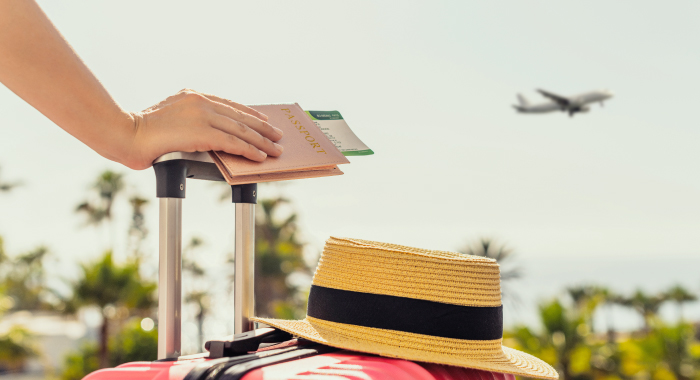Travel is relaxing and fun—but becoming the victim of a travel scam is not. With many scammers now turning their attention to travel-related purchases, it’s important to understand when travel scams occur and what you can do to avoid them.
Common Travel Scams
Like any kind of fraud, there’s no one-size-fits-all for a travel scam. What’s more, scammers are constantly changing and updating their schemes, in an effort to stay one step ahead of consumers and the law. In order to stay safe, it’s a smart idea to learn what scams to watch out for. A few common examples of travel scams include:
- Cheap Charter Flights: Various aviation groups report that since COVID-19, private plane charter scams are on the rise. You may receive a flyer in the mail or see a social media ad about low-cost, private plane options for airfare: which can seem especially tempting as traditional airfare prices continue to rise. Just remember that if a deal looks too good to be true, it probably is.
- Travel Prize: In this scam, the fraudster will get in touch claiming that you’ve won a travel-related prize, such as a free vacation or hotel stay—and all you have to do is pay a small fee up front to access your prize. If you haven’t entered any competitions (and even if you have), be wary. Look for an official phone number for the company, cross-check it with the Better Business Bureau, and don’t give away any personal information or pay any money.
- 3rd Party Vacation Rental: These days it’s easy for fraudsters to take a legitimate vacation rental listing and pass it off as their own. They may claim to be a third-party rental agency with great deals, show you a real vacation home website, but ask you to complete the payment on a different site. To protect your finances (and ensure you’ve got a real place to stay on arrival) only book and pay for rentals from a verified accommodation provider.
How to Travel Smart
Use these smart travel tips to help you avoid travel scams and enjoy a great vacation.
- Book on Official Websites: Booking directly with a hotel, airline or tour agency can help to ensure it’s a legitimate travel offer. Plus, it’s not longer true that third-party vendors have the best deals—so you might save money by booking on the official platform, and nab yourself a more forgiving cancellation policy, too.
- Avoid Flashy Promotions: In general, there’s a lot less chance of a scam if you approach a travel company, rather than the other way around. Check special deals from verified travel companies, but never book by clicking a link from an email or text message. Instead, always book via an official website and double check the URL to make sure it’s legitimate.
- Ask for Advice: Friends and family are a great resource for discovering great travel deals while avoiding a travel scam. Ask around to see where people have traveled recently and see if you can get some recommendations on well-priced flights, accommodation, on-the-ground tour companies and so on.
- Pay With a Credit Card: Credit cards offer much stronger fraud protection than a debit card or bank transfer, so if something does go wrong, you’ll have a better chance to recoup your funds. Plus, fraudsters are more likely to operate in bitcoin, wire transfers or other less common currency, so it’s best to avoid paying for travel via those means.
- Research Before Booking: Before booking and paying, do a Google search on the company you’re purchasing with, to see if any complaints have been made or travel scams reported. This is especially important if it’s a travel company you haven’t heard much about. Doing research first is a small step that can save you a big headache in the long run.





